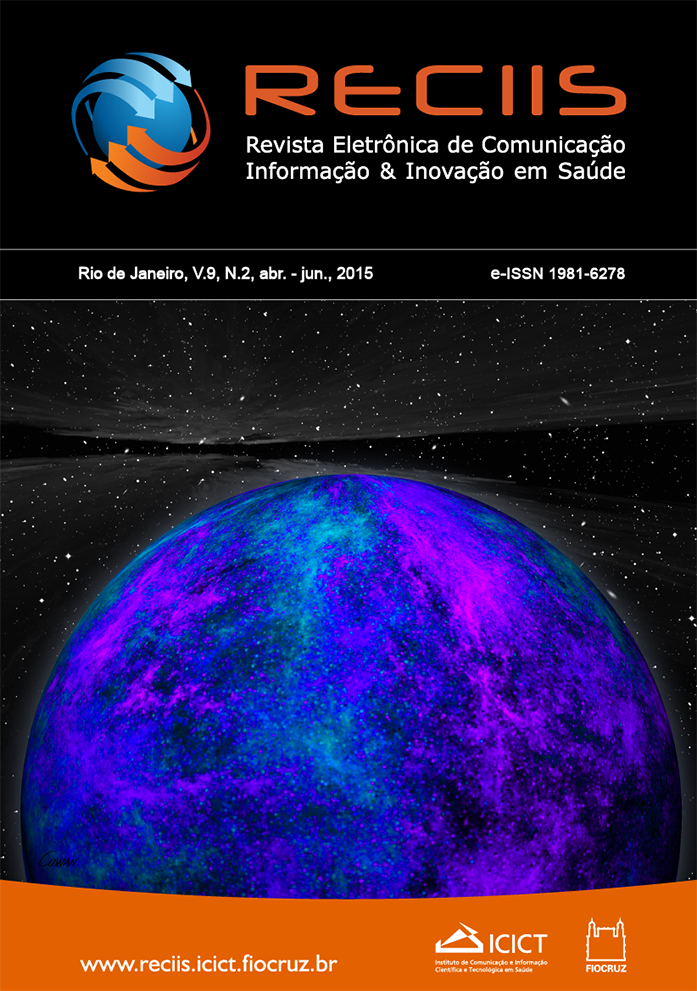Brazilian scientific output in stem cells from 2000 till 2013: features and international collaboration
DOI:
https://doi.org/10.29397/reciis.v9i2.965Keywords:
Bibliometrics, Scientometrics, Scientific output, Scientific collaboration, Stem cellsAbstract
This article analyzes the Brazilian scientific output in stem cells published from 2000 till 2013 and indexed in the Web of Science (WoS). The research constitutes a bibliometric study and the results show the significant growth of the scientific output, the predominance of articles and the preference for the English language. Among the most productive institutions stand out the Universidade de São Paulo and the Universidade Federal do Rio de Janeiro. The areas hematology and transplantation are highlighted in thematic classification of scientific output marked by the interdisciplinarity. The core of journals reveals strong presence of foreign journals and indicates the international diffusion of scientific output. International collaboration has achieved the index of 31.3% and brought together 56 partner countries, especially USA, Germany and France. It is considered that Brazil has established itself as an important agent in research on stem cells and that scientific output is likely to increase in the coming years and to reach greater international visibility.Downloads
Published
How to Cite
Issue
Section
License
Author’s rights: The author retains unrestricted rights over his work.
Rights to reuse: Reciis adopts the Creative Commons License, CC BY-NC non-commercial attribution according to the Policy on Open Access to Knowledge by Oswaldo Cruz Foundation. With this license, access, download, copy, print, share, reuse, and distribution of articles is allowed, provided that it is for non-commercial use and with source citation, granting proper authorship credits and reference to Reciis. In such cases, no permission is required from the authors or editors.
Rights of authors’s deposit / self-archiving: The authors are encouraged to deposit the published version, along with the link of their article in Reciis, in institutional repositories.












